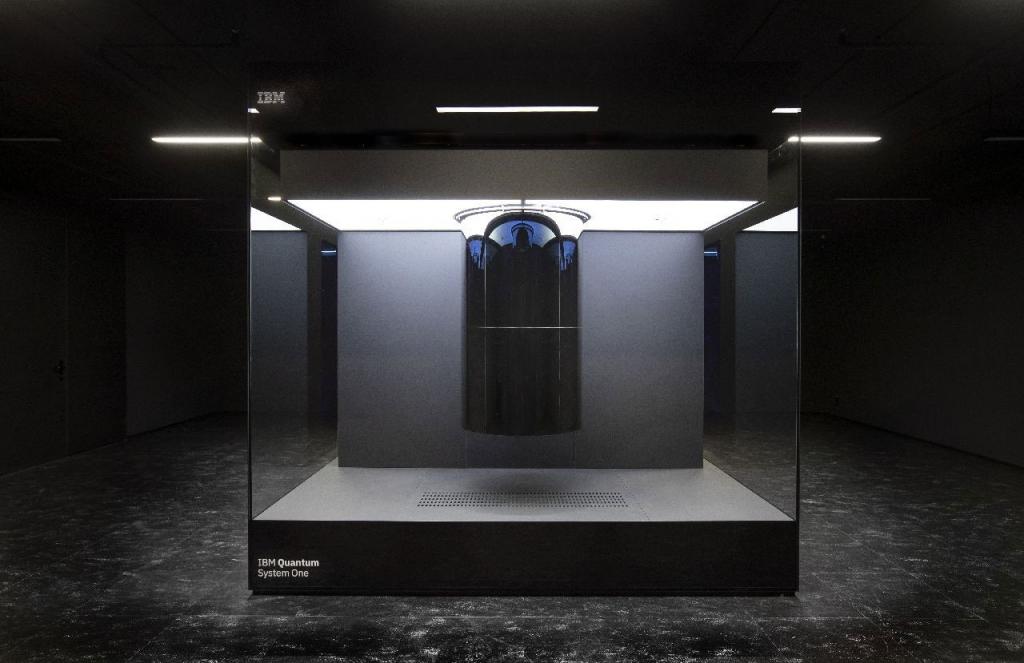Thessaloniki gets ready for its metro launch in November
The underground rapid transit lines have been under construction for almost two decades due to various project delays
 TheMayor.EU logo
TheMayor.EU logo 
The IBM Quantum System One in Ehningen is the most powerful system in Europe, Source: © IBM Research on Fraunhofer-Gesellschaft website
With 27 qubits, Germany drives forward onto the next potential industrial revolution
On 15 June, IBM and Fraunhofer-Gesellschaft presented Europe’s most powerful quantum computer, located in Ehningen, Baden-Württemberg, which at 27 qubits of operating power brings us one step closer to the next potential industrial revolution.
Both Chancellor Angela Merkel and the Minister-President of Baden-Württemberg Winfried Kretschmann praised the event, with the latter saying in a press release that whoever mastered quantum technologies would hold the key to the future and to technological sovereignty.
Prof. Reimund Neugebauer, President of Fraunhofer-Gesellschaft said that this is a great opportunity for start-ups, large corporations and SMEs alike to develop skills and test out the vast possibilities of the device, utilizing its potential.
But what does a quantum computer actually do? Essentially, instead of storing information in the form of bits that can have two possible states – one and zero, it stores information in the form of qubits. A qubit can have both states at the same time.
In terms of processing power this means that what a normal computer can do in 10,000 years, a quantum computer can do in 200 seconds.
The state of Baden-Württemberg will provide up to 40 million euros by the end of 2024 in the form of collaborative projects and investments. This is in alignment with the state of Baden-Württemberg’s goal to bring it to the forefront of quantum computing technologies.
In fact, Germany has already invested two billion euros in the development of quantum computing technology. The goal is to soon build quantum computers without help from the US.
So far, there has not been a quantum computer built in Germany without help from abroad, but this may soon change.
If you want to keep up with how European cities and regions are changing, follow us on Facebook, Twitter and Instagram.

The underground rapid transit lines have been under construction for almost two decades due to various project delays

Now you can get your wine in Talence by paying directly in Bitcoin

That’s because the state has to spend money on updating the railway infrastructure rather than subsidizing the cost of the popular pass

Rethinking renewable energy sources for the urban landscape

The examples, compiled by Beyond Fossil Fuels, can inform and inspire communities and entrepreneurs that still feel trepidation at the prospect of energy transition

Now you can get your wine in Talence by paying directly in Bitcoin

The 10th European Conference on Sustainable Cities and Towns (ESCT) sets the stage for stronger cooperation between the EU, national and local level to fast track Europe's transition to climate neutrality.

At least, that’s the promise made by the mayor of Paris, Anne Hidalgo

The underground rapid transit lines have been under construction for almost two decades due to various project delays

At least, that’s the promise made by the mayor of Paris, Anne Hidalgo

Hostal de Pinós is located in the geographical centre of the autonomous region

Despite its church-y name, the district has long been known as the hangout spot for the artsy crowds

Urban dwellers across the EU are having a say in making their surroundings friendlier to people and the environment.

Forests in the EU can help green the European construction industry and bolster a continent-wide push for architectural improvements.

Apply by 10 November and do your part for the transformation of European public spaces

An interview with the Mayor of a Polish city that seeks to reinvent itself

An interview with the newly elected ICLEI President and Mayor of Malmö

A conversation with the Mayor of Lisbon about the spirit and dimensions of innovation present in the Portuguese capital














